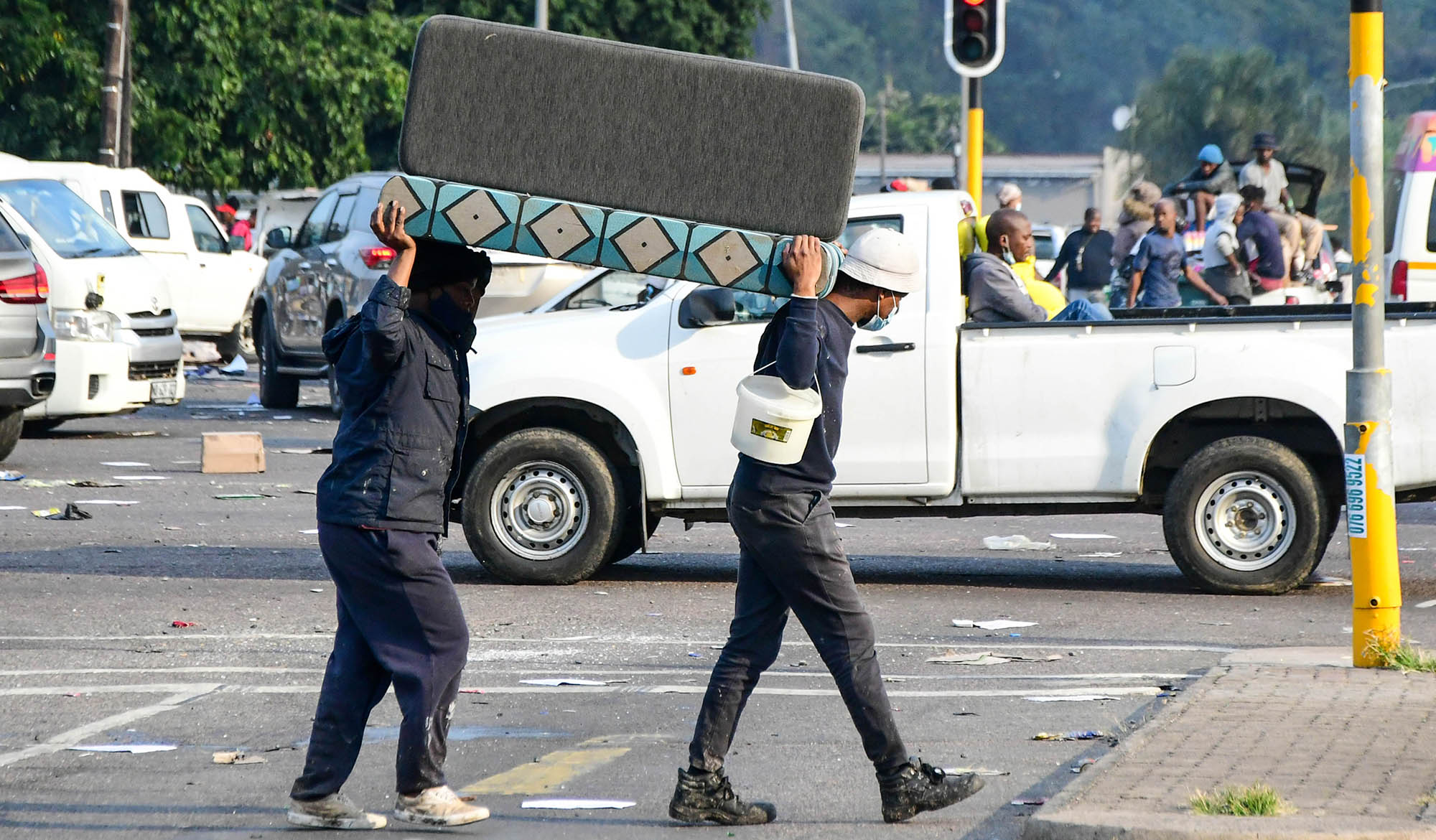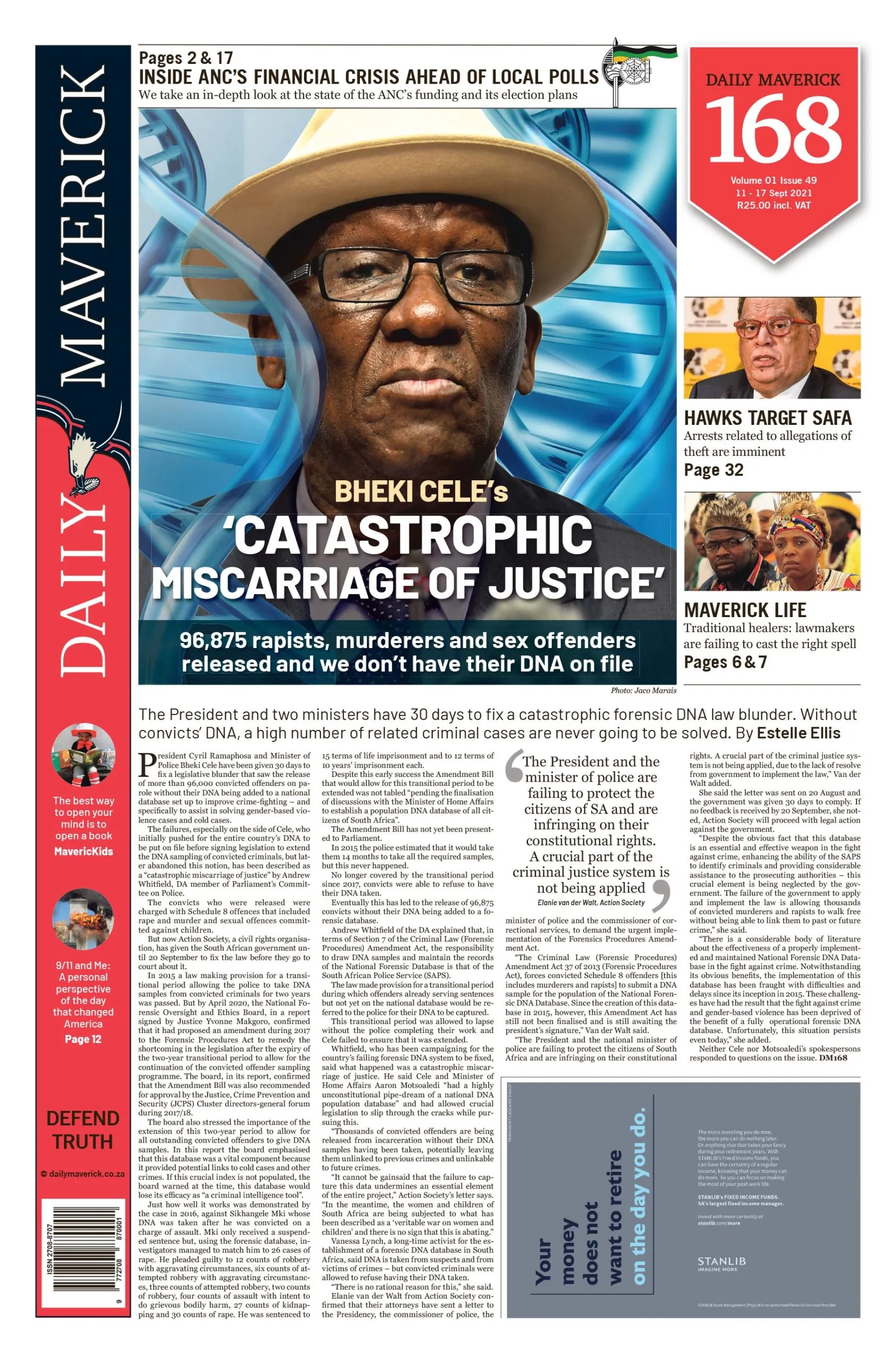First published in the Daily Maverick 168 weekly newspaper.
After the winter riots, a number of commentators observed that “South Africa has a KwaZulu-Natal problem”. They didn’t just mean that this province was the epicentre of the bread riots, looting, sabotage and vigilante violence in July. They also meant that it was from this province that the kleptocrats seized hold of the ANC, with Jacob Zuma as their leader. There was also an intimation that the ethnic politics of Inkatha have captured the ANC in KZN.
For all these reasons, including the scale of the membership claimed for the ANC in KZN, what happens here is profoundly important for the country as a whole. As we approach the local government elections it is clear that the ANC is in serious trouble.
In 2011, 61% of people said they trusted the ANC. A recent survey has shown that only 27% of people say they trust the ANC, with 38% saying they trust President Cyril Ramaphosa. We have known for a long time that Ramaphosa is more popular than the ANC, but the new figures show rapidly collapsing support for the ANC.
With trust in the police at only 26%, it is clear that the state itself, and not just the ruling party, is confronting a crisis of legitimacy. And with trust in opposition parties at 24%, it is clear that most people do not see any of the currently existing political parties as a viable alternative to the ANC.
Alarmingly, more than two-thirds of the people polled said they would be willing to abandon elections for an unelected leader who “could impose law and order, and deliver houses and jobs”.
This means that, at the national level, a clear majority of people feel that democracy has failed them and that they would give it up for an authoritarian who could get things done. It is not uncommon to hear elites speaking in this way, and referring to the ruthless dictator Paul Kagame of Rwanda as a model. We will know soon enough if this openness to authoritarian politics benefits Herman Mashaba or the Economic Freedom Fighters at the national level.
But what happens in KZN will shape national politics in important ways and it is not clear what will happen in this province at election time. We do know two things for sure. One is that the ANC in the province is deeply and bitterly split between the Zuma and Ramaphosa factions.
The other is that the majority of the huge numbers of people who participated in the winter riots are not, as the media often assumes, Zuma supporters. Support for Zuma is overwhelmingly located in the ANC, and not society in general, and the riots were largely an expression of a deep social crisis rather than support for Zuma.
How all this will translate into voting patterns is not clear. Some assume that the trend of former ANC voters staying at home will continue, which will be a huge boon to the opposition parties. Others assume that, with the ANC ripped into factions, the party will struggle to build the unity required to get its remaining voters out. Nobody seems to think that the ANC in KwaZulu-Natal is going to have a good election.
For others, though, the real issue is what happens after the election. If the ANC takes a hit at the polls, and more leading figures in the kleptocratic faction are brought to justice, that faction will have nothing to lose by moving even further away from democratic modes of politics. There is deep fear that the authoritarian politics that developed within the Zuma faction will escape the narrow politics of the Zuma project and spin out into a form of politics that could present itself as able to provide security and meet people’s basic needs outside the now battered democratic consensus.
A project like this could potentially make South Africa’s KwaZulu-Natal problem even more acute. DM168
Dr Imraan Buccus is senior research associate at the Auwal Socio-Economic Research Institute and a postdoctoral scholar in gender justice, health and human development at Durban University of Technology.
This story first appeared in our weekly Daily Maverick 168 newspaper which is available for R25 at Pick n Pay, Exclusive Books and airport bookstores. For your nearest stockist, please click here.





 Looters carry goods on Umgeni Road on 13 July 2021 in Durban, South Africa. (Photo: Gallo Images / Darren Stewart)
Looters carry goods on Umgeni Road on 13 July 2021 in Durban, South Africa. (Photo: Gallo Images / Darren Stewart) 